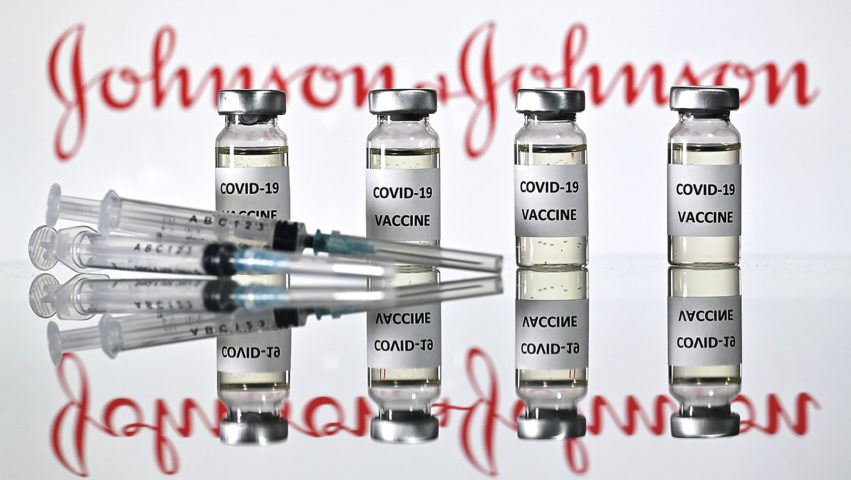*Photo credit: JustinTallis, AFP via GettyImages
By Olivia Main
South Africa officially received its first shipment of one million Oxford-AstraZeneca COVID-19 vaccines, also known as ‘Covishield’, from the Serum Institute of India (SII) on 1 February 2021, with initial plans set for the remaining 500 000 of the procurement due to arrive later on. However, the AstraZeneca-Oxford vaccine has brought forth perplexing results, and upon further investigation, it has been decided that we need a new plan of action.
The assumed ‘life-saving antigens’ underwent quality checks in a cold room lab, which took between 10 and 14 days. President Cyril Ramaphosa initially outlined South Africa’s COVID-19 vaccine rollout plan during his address to the nation, with regards to developments in the country’s response to the coronavirus pandemic, stating that there would be a three phase mass inoculation programme and that the first batch of vaccines “will be distributed across the country to thousands of our healthcare workers who every day put their own lives at risk to save others” first.
Due to a study completed by Wits University, government had to rework their plans to start administering the AstraZeneca vaccine to the public and the Department of Health has, now, alternatively opted to push forward the administration of the Johnson & Johnson vaccine – demonstrating a 57% effective rate against the 501Y.V2 strain – as nine million vaccine doses were secured from them and were initially set to commence with delivery in the second quarter.
Health Minister Zweli Mkhize recently announced that this vaccine will be administered by way of an implementation study intended to aid in keeping track of new developments:
“The Johnson & Johnson vaccine has been proven effective against the 501Y.V2 variant, and the necessary approval processes used in the country are underway. The rollout of the vaccination will proceed in the form of an implementation study with the partnership between the medical research council and the national department of health’s vaccination sites across the country.
“This will help us get valuable information about the pandemic in the post- vaccination community and thus ensure early identification of breakthrough infections should they occur amongst the vaccinated healthcare workers,” Minister Mkhize commented.
The Johnson & Johnson vaccine will be followed by an effort to vaccinate an estimated 40 million people in South Africa by the end of 2021. South Africa will, however, also be utilising the Pfizer vaccine and possibly the Russian Sputnik V and the Chinese Sinopharm vaccine, according to Minister Mkhize.
Government to roll out electronic vaccine data system
The Department of Health has developed an electronic vaccine data system (EVDS) to streamline the vaccine registration and rollout process.
“This will allow us to capture all relevant data associated with the administration of the vaccine.
“This system allows a person to make an appointment as soon as they qualify for a vaccination at the vaccine centre closest to them. The system will record vaccinations as they are administered,” the President said.
The EVDS will help the government monitor vaccine effectiveness, planning and safety monitoring, as well as uptake and coverage, explained Dr Anban Pillay, Deputy Director General of the Department of Health and member of the South African Covid-19 ministerial advisory committee on vaccines.
The EVDS will roll out simultaneously with the vaccine in early February. It will collect information such as patient demographics, number of doses taken, where the patient was vaccinated, vaccine administered, and a record of vaccination issued to individuals.
“There’ll be a track and-trace of vaccines using bar code scanning as well as the safe and secure disposal of these packaging, vials and data verification linked to the volumes that have been submitted,” Pillay said.
Inevitably, as other countries have warned, there will arise the issue of theft of vaccines, now being a highly sought after global commodity. For this reason, the Department of Health will be storing the vaccines in an undisclosed “centralised location” in order to prevent theft.
“There is a security issue because countries which have already begun rolling out the vaccines have warned us there is huge theft of it, so we may not even disclose where it’s being centrally stored,” departmental spokesperson Popo Moja commented.
President Ramaphosa is encouraged though, by the daily collaboration between the public and private sectors.“ A considerable amount of work has been done with the private sector, and I am pleased that there is strong commitment to support every aspect of the national vaccine rollout effort. This includes funding when needed, logistics, distribution and administration.”
Khumbudzo Ntshavheni appointed Acting Minister in the Presidency
President Cyril Ramaphosa has appointed Khumbudzo Ntshavheni as the Acting Minister in the Presidency responsible for Planning, Monitoring and Evaluation, after the sudden death of the Honourable Jackson Mthembu, the Presidency announced on 27 January.
Minister Ntshavheni will continue to perform her responsibilities as Minister of Small Business Development while acting as Minister in the Presidency “until further notice”.

